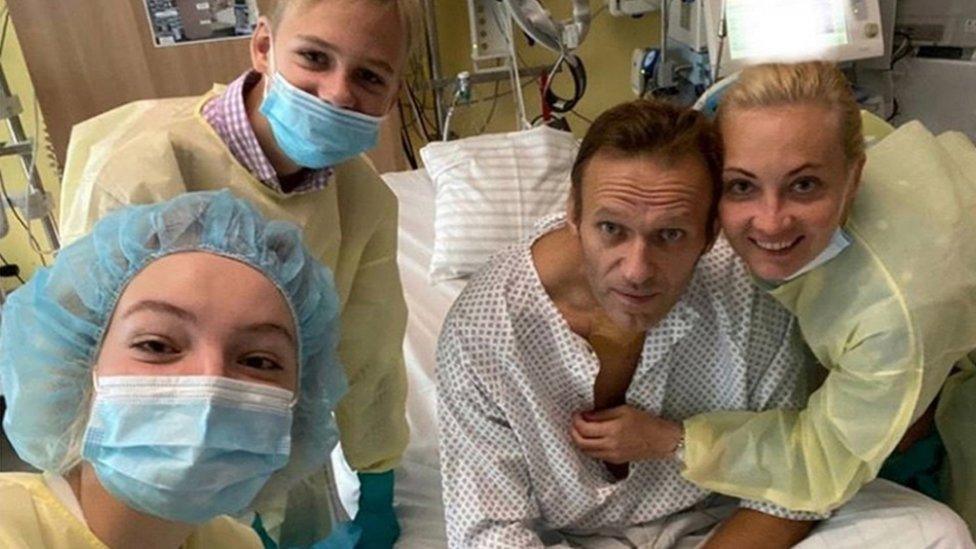Alexei Navalny blames Vladimir Putin for poisoning him
- Published
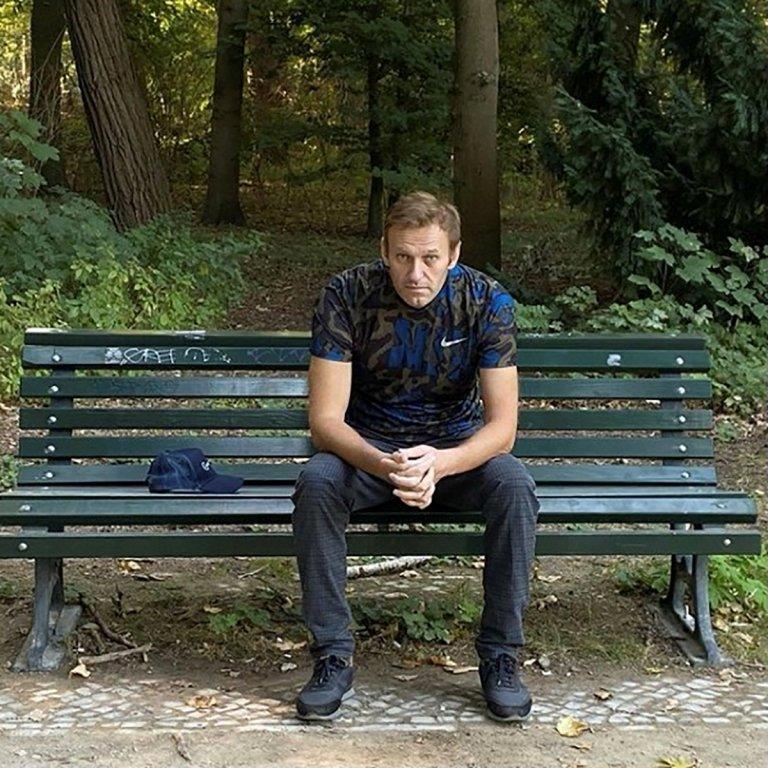
Navalny was released from hospital in Berlin last week
Leading Russian opposition activist Alexei Navalny says he believes President Vladimir Putin was responsible for his poisoning.
"I assert that Putin is behind this act, I don't see any other explanation," he told German news magazine Der Spiegel in an interview.
Germany, where Mr Navalny is recovering, says he was poisoned by a Novichok nerve agent. Its findings were confirmed by labs in France and Sweden.
The Kremlin denies any involvement.
Responding to the interview on Thursday, Mr Putin's spokesman said there was no evidence that Mr Navalny had been poisoned with a nerve agent, and said CIA agents were working with the opposition leader.
Mr Navalny collapsed on a flight in Russia's Siberia region on 20 August. He was transferred to the Charité hospital in the German capital Berlin two days later.
In an interview published by Der Spiegel on Thursday, external - the first since he fell ill - Mr Navalny said the order to use Novichok could only have come from the heads of three of Russia's intelligence services, all of whom work under Vladimir Putin.
"If 30 people have access to a [chemical] agent, and not three, then it's a global threat," the 44-year-old told the magazine.
His supporters initially believed his tea had been spiked at Tomsk airport but traces of the nerve agent were later found on water bottles at the hotel where he stayed the previous night.
Speaking of his experience, Mr Navalny said: "You feel no pain, but you know you're dying. Straight away."
Allow Instagram content?
This article contains content provided by Instagram. We ask for your permission before anything is loaded, as they may be using cookies and other technologies. You may want to read Meta’s Instagram cookie policy, external and privacy policy, external before accepting. To view this content choose ‘accept and continue’.

It was only because of "a chain of lucky circumstances" that he had been able to receive urgent medical care and survive, he said. Otherwise, "it would have just been a suspicious death".
Kremlin's 'extreme measures'
Asked why the Russian president would target him, Mr Navalny spoke of recent unrest in the far eastern province of Khabarovsk.
"The Kremlin realises that it must take extreme measures to prevent a 'Belarus situation'," the opposition leader said, in reference to weeks of mass anti-government protests there following a disputed election.
"The system is fighting for its survival and we've just felt the consequences."
Mr Navalny was released from hospital in Berlin last week and is still receiving physiotherapy to aid his recovery.
His spokeswoman said last week that his bank accounts had been frozen and his flat seized but Mr Navalny told Der Spiegel he still planned to return to Russia.
"Not going back would mean that Putin had achieved his goal... I will not give Putin the gift of not returning to Russia."
The EU and a number of governments have called for Russia to investigate Mr Navalny's poisoning.

If the attack on Alexei Navalny was meant to frighten him into silence or compliance, it failed. He's made it clear that he intends to return to Russia - and to opposition politics - more determined than ever, pledging to take on those "villains" who commit "the most heinous crimes".
But the fact he identifies Vladimir Putin as chief "villain" in his poisoning has infuriated the Kremlin. Its spokesman called the accusation "utterly unfounded" and "insulting".
That's standard Kremlin-speak but Dmitry Peskov also said he had "concrete information" that Alexei Navalny was getting "clear instructions" from the CIA. That's new, and an escalation apparently aimed at discrediting him as thoroughly as possible here in Russia.
Mr Navalny has already mocked the claim online, wondering whether the CIA was "instructing" him on his physiotherapy, as that's all he's been doing since his release from hospital. He's threatened to sue for what he called a "monstrous lie", which he believes is meant to distract Russians from what the Kremlin "needs to hide".

A nerve agent from the Novichok group was also used to poison Russian ex-spy Sergei Skripal and his daughter in Salisbury, England in 2018. They both survived, but a local woman, Dawn Sturgess, died after coming into contact with the poison.
Britain accused Russia's military intelligence of carrying out that attack. Twenty countries expelled more than 100 Russian diplomats and spies. Moscow denied any involvement.
Laura Foster explains how the Novichok nerve agent works
- Published2 September 2020
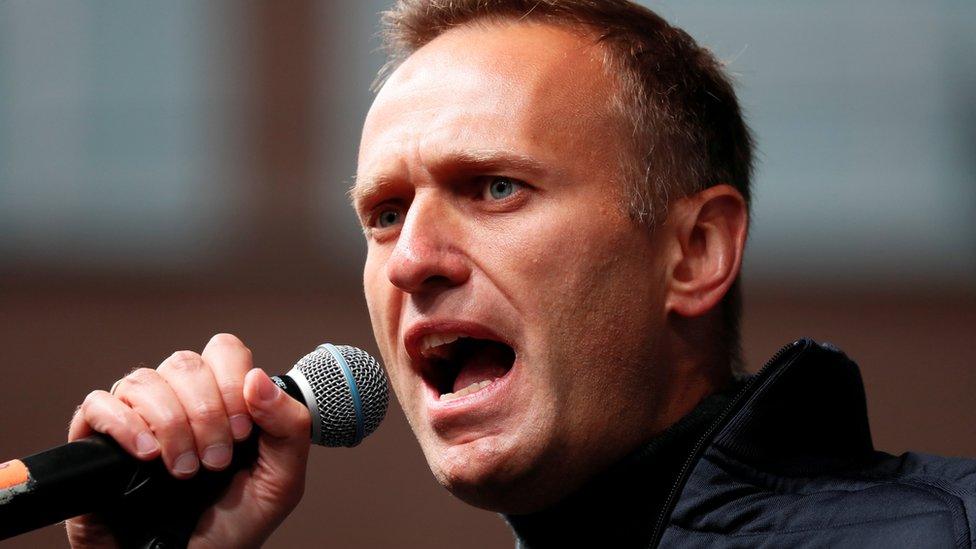
- Published24 September 2020
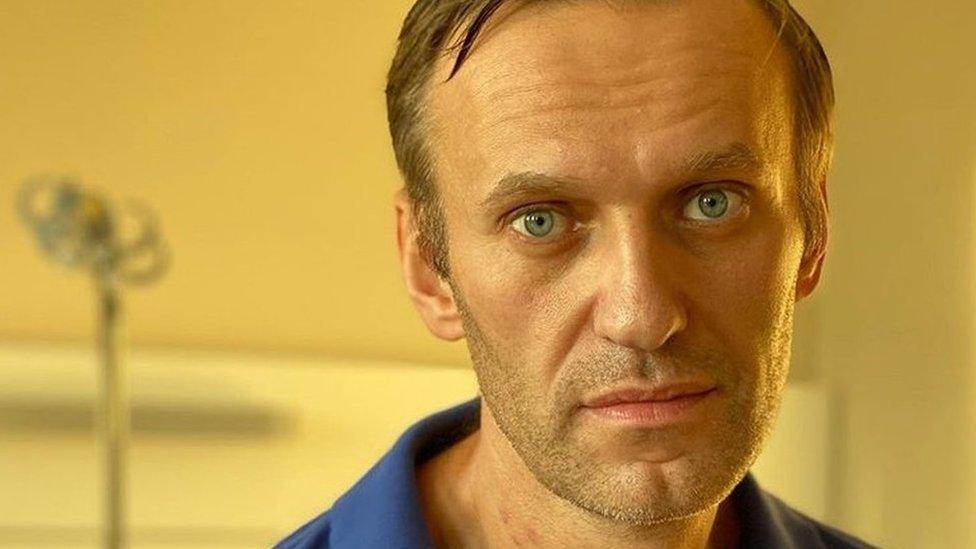
- Published4 September 2020
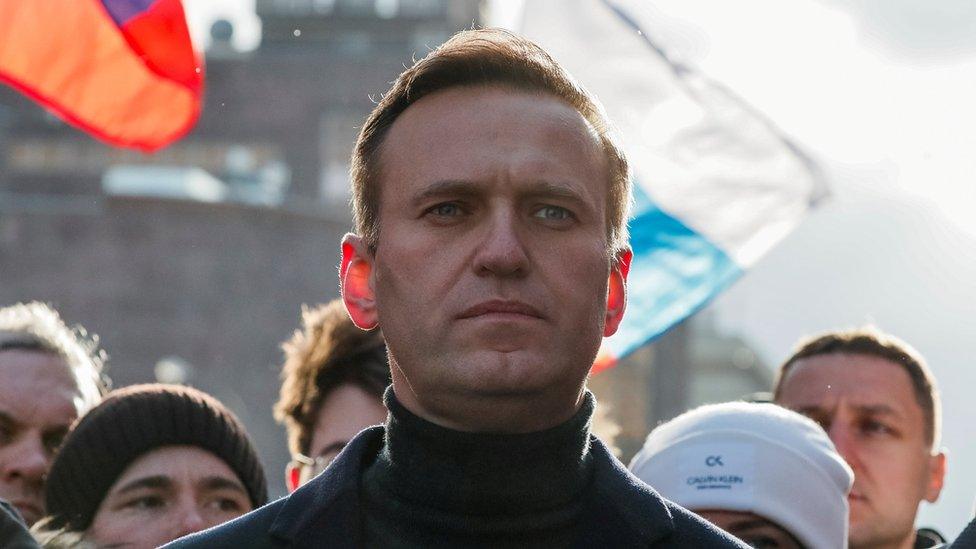
- Published16 February 2024
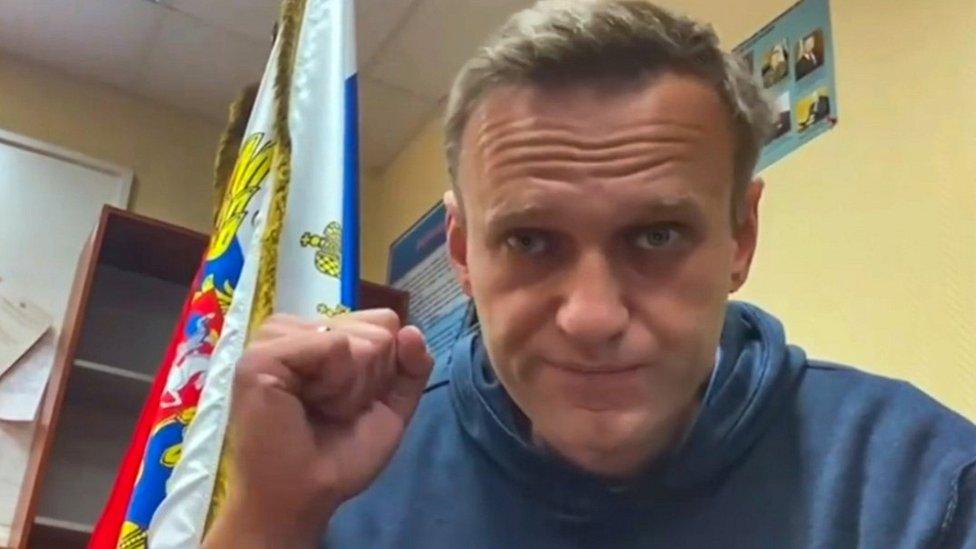
- Published23 September 2020
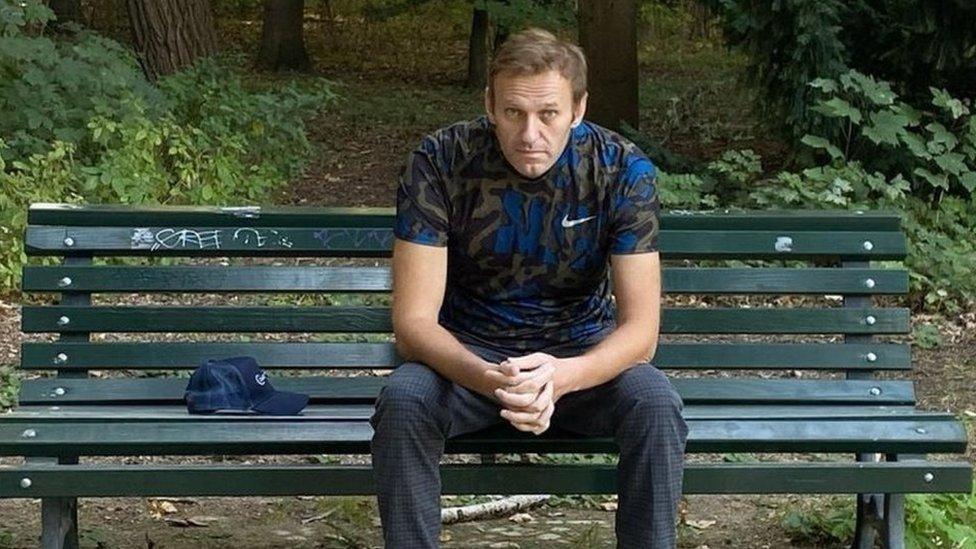
- Published17 September 2020
